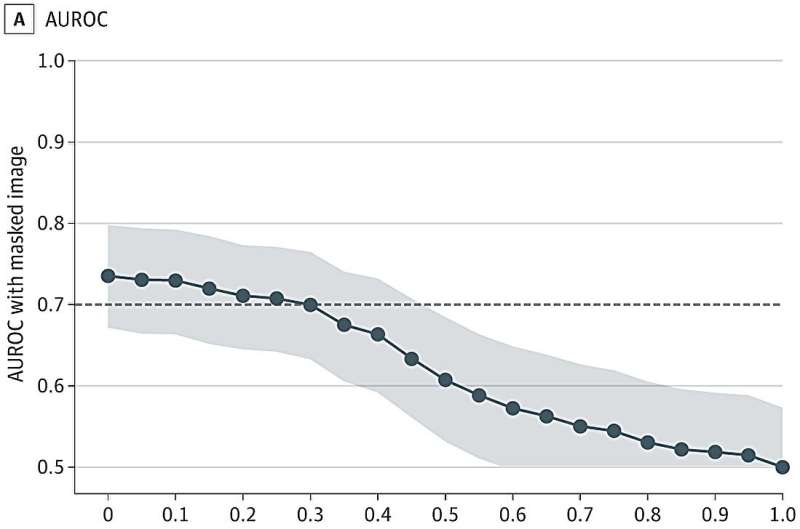Using AI to diagnose autism in children

A multi-institutional Korean team of child and adolescent psychologists, behavioral scientists, ophthalmologists and biomedical systems informatics specialists has found that deep-learning-based AI systems can accurately diagnose children with autism. In their study, reported in the journal JAMA Network Open, the group created an autism-diagnosing tool using a learning-based AI system and tested it on human subjects.
Autism, known more formally as autism spectrum disorder, is a neurodevelopmental disorder characterized by problems with communication, social interaction, and oftentimes, repetitive movements. Prior research has suggested that as many as 1 in 36 people have some degree of autism. Prior research has also shown that the earlier it is diagnosed, the more can be done to help people with the disorder overcome problems that many experience.
In this new effort, the research team noted that prior research has shown that brain disorders such as ADHD can result in minor retinal abnormalities. Suspecting that might be the case with autism, the researchers conducted an experiment to find out.
The work involved teaching an AI system to recognize patterns in the retinas of children with autism. They then used the system to scan retinal images of 958 children, half of whom had the disorder and to determine which of the children had autism. The system found every one of them, and did not produce any false positives.
The system also assigned a number score that gave an estimate of where on the spectrum those identified as having the disorder lay. The system was not as good at the second part, with an accuracy rate of 48% to 66%, compared to assessments made by standardized tests such as the Autism Diagnostic Observation Schedule—Second Edition.
In their experiment, the children involved were between the ages of 4 and 18; thus, it is not yet known if the system would be as accurate with younger children (the retina does not fully develop until the age of 4). The team plans to find out by conducting more experiments.
More information:
Jae Han Kim et al, Development of Deep Ensembles to Screen for Autism and Symptom Severity Using Retinal Photographs, JAMA Network Open (2023). DOI: 10.1001/jamanetworkopen.2023.47692
Journal information:
JAMA Network Open
Source: Read Full Article


